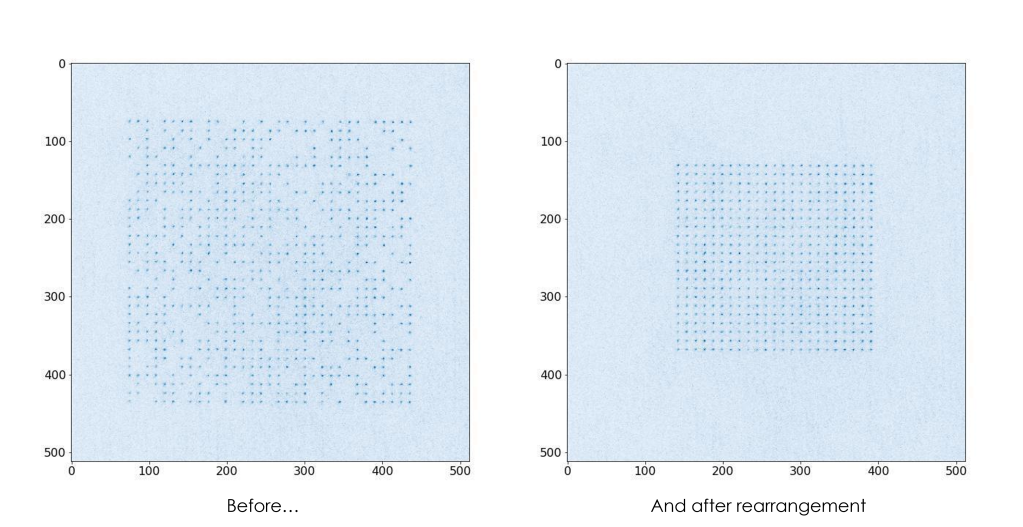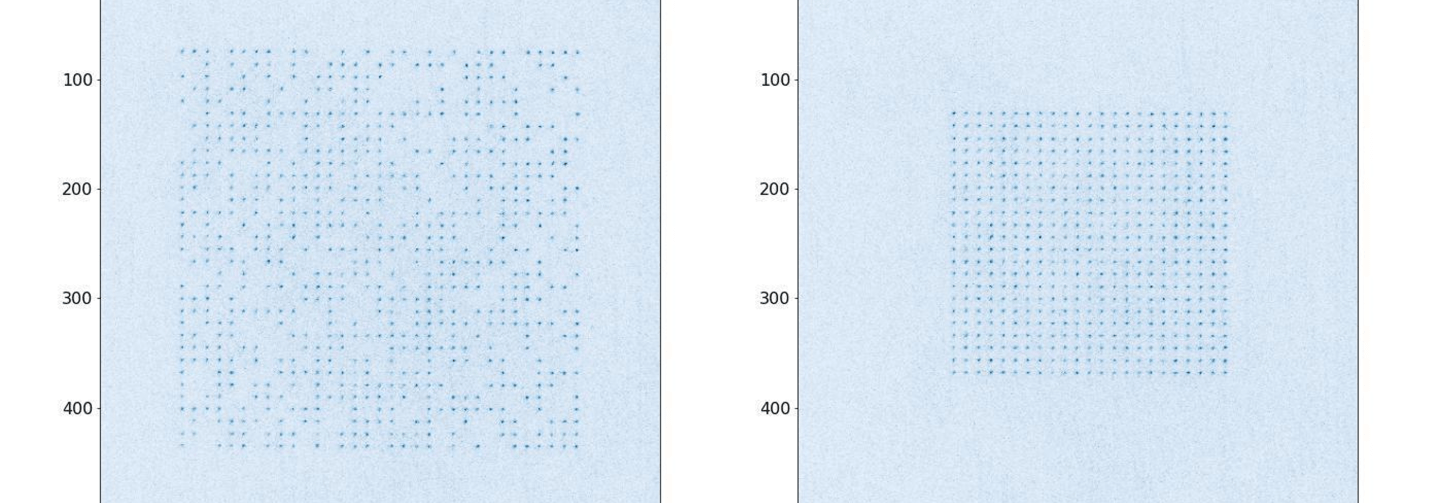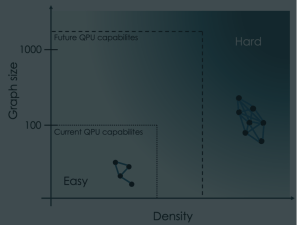Authors: Corentin Monmeyran
Today, we are excited to share an important milestone of our 1000+-qubit program: the rearrangement of a defect-free register of 506 atoms. This sets a new precedent for our neutral atom quantum computing platform, which is based on dipolar trap arrays rearranged by a moving “tweezer”.
Why this matters
The number of atoms a neutral atom quantum computer can handle is a key feature, both for analog and digital computations, since each of them will encode a qubit. However, these atoms have a finite lifetime, meaning that they can randomly be kicked out of their dipolar traps. Moreover, all individual processes required to prepare the register also have non-zero probability of failure. Not losing any atom during the preparation of the register is therefore a difficult task which becomes exponentially more difficult with the number of atoms. Besides being a good benchmark of operational excellence in register preparation, the ability to generate defect-free registers is also critical to implement calculations that can output reliable results.
How we did it
Generating defect-free registers required multiple ingredients:
- A large number of high-quality traps. This requires cutting edge hardware (high power lasers, state-of-the-art optical elements…) and trap optimization methods in order to ensure a good spatial uniformity over a large field-of-view;
- Speed. The atoms have a finite lifetime in dipolar traps since they do not evolve in a perfect vacuum. As such the time it takes to perform a rearrangement cycle should be short with regards to the lifetime of the entire register. More precisely, we need t < τ/N, where t is the cycle duration, N the number of atoms and τ the individual atom lifetime. The cycle duration includes fixed costs (imaging, computation of moves…) in addition to the time spent to move individual atoms. We alleviated this constraint by performing multiple cycles of rearrangement, with an initial, long rearrangement moving the atoms to their target locations, and a much shorter one correcting the defects induced mostly by the finite lifetime of the register;
- Efficiency. The rearrangement process is full of intermediate steps: imaging, cooling, loading and unloading to/from a trap, shuttling atoms for one location to the other… All of them are sources of atomic loss and should be under tight control. Note that there is a trade-off between efficiency and speed: finding a sweet spot between these metrics is also a key part of success.

What comes next
More than a technological breakthrough, this achievement has immediate practical implications. This milestone was indeed obtained in a quantum computer with a few tens of seconds lifetime. As such, all the processes and know-how that we developed can be readily transferred to our Orion product line in general, and to our Quantum Advantage program in particular. As such, it will directly impact the real-life, industry-size problems that we are tackling.
Moreover, producing 506-atom, defect free registers is just a stepping stone on our scaling roadmap. The next step is breaking the 1000-atom, defect-free barrier which we expect by the end of year through:
- a cryogenic setup that will improve lifetime by multiple order of magnitudes
- a redesign of our trap generation system to increase significantly the laser power available for trapping
- even faster and more efficient methods to generate registers
As the technology continues to advance toward the 1000-qubit mark and beyond, we can expect to see increasingly powerful quantum simulations and computations that could revolutionize fields from materials science to financial modeling. Hence, our ability to generate large, defect-free register puts Pasqal on a promising trajectory toward creating quantum computing systems that deliver practical value across multiple industries.
Stay tuned for more developments as the team works toward their next ambitious milestone in the coming months!

